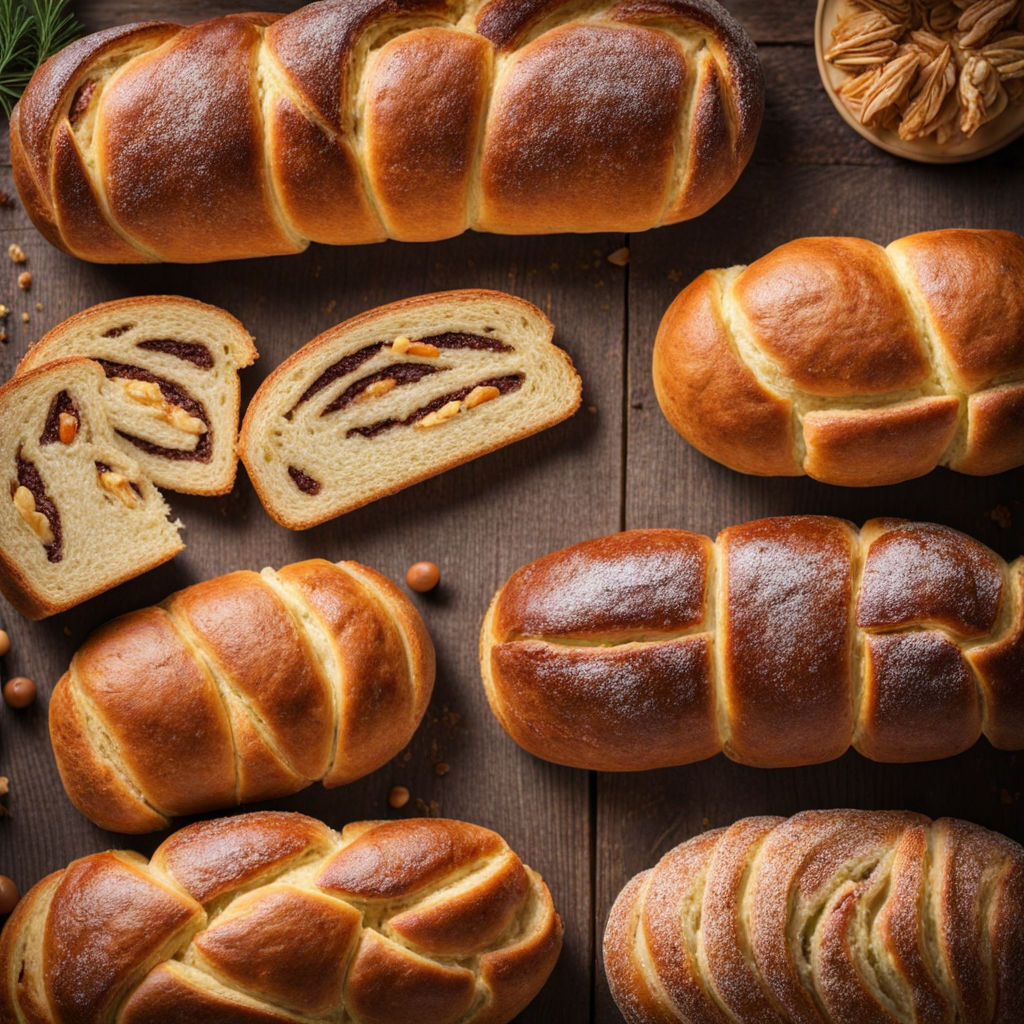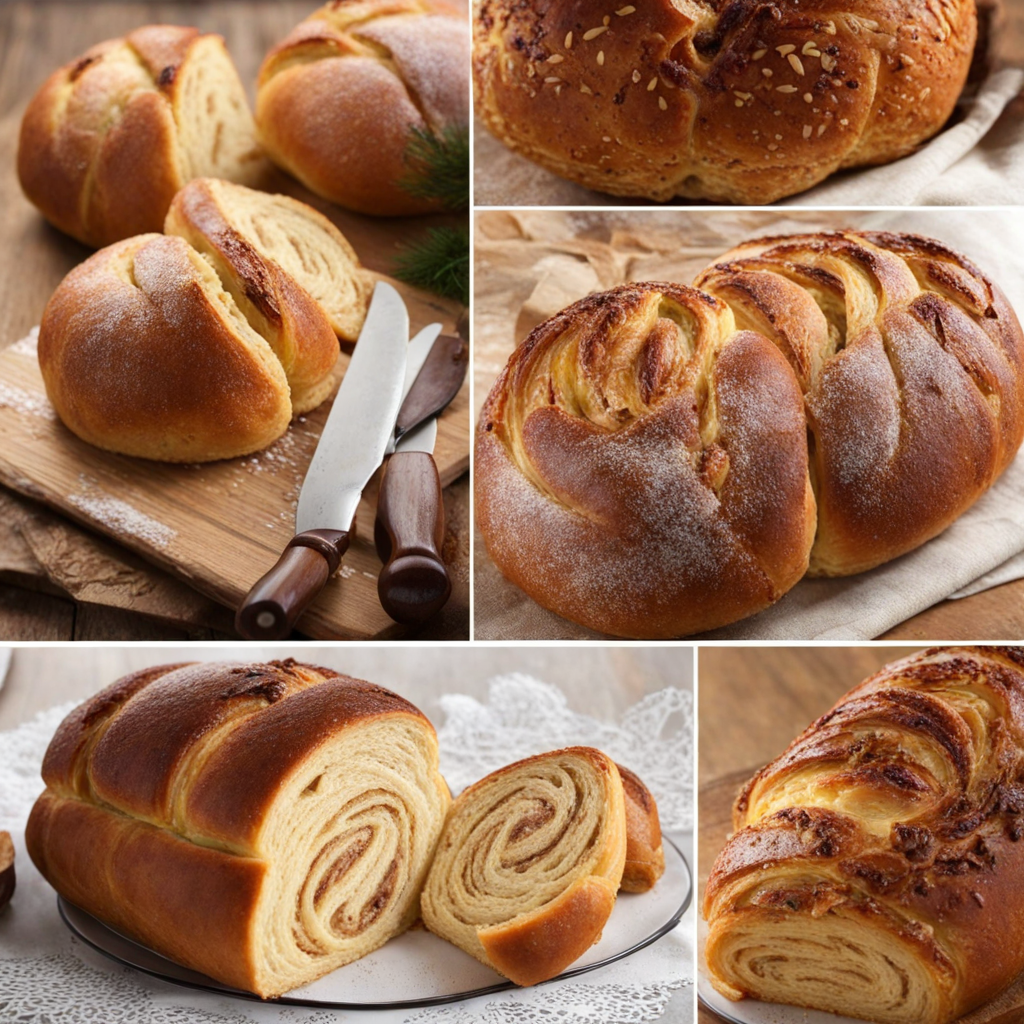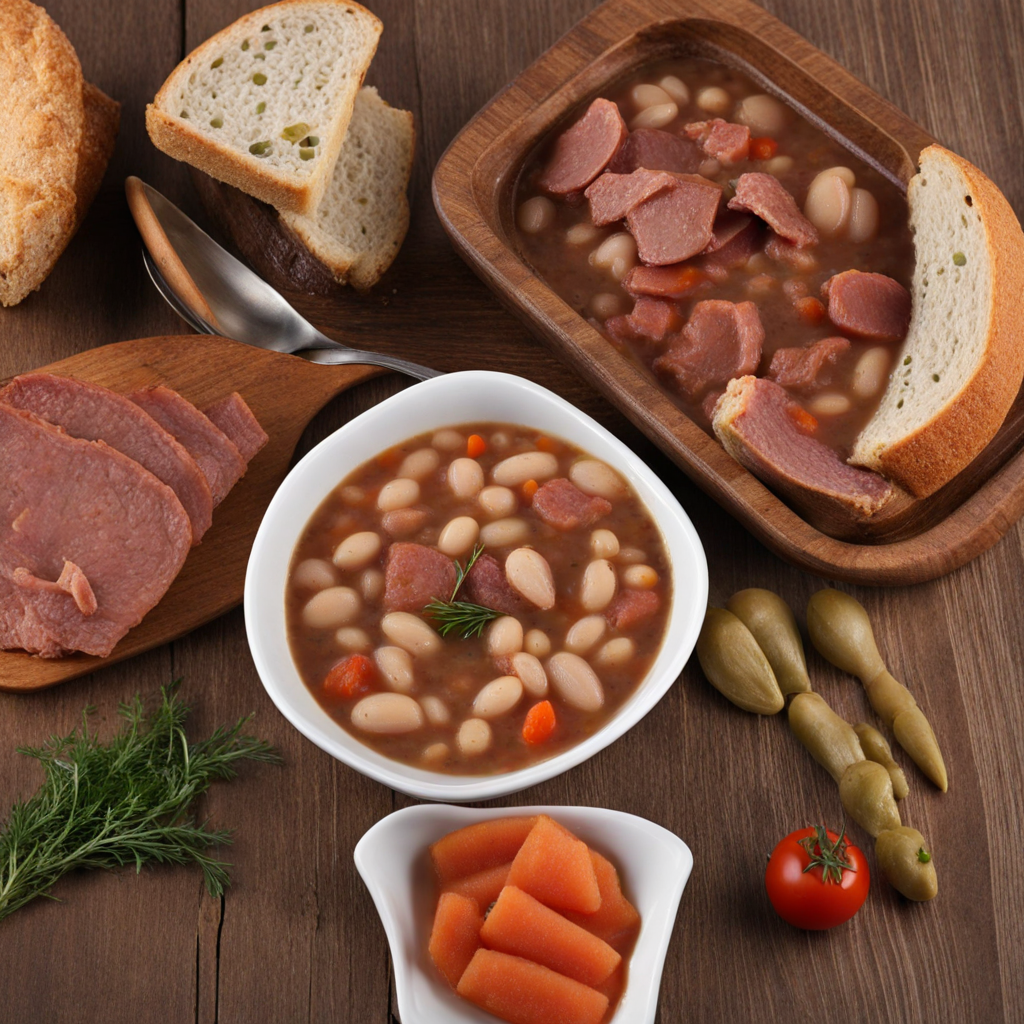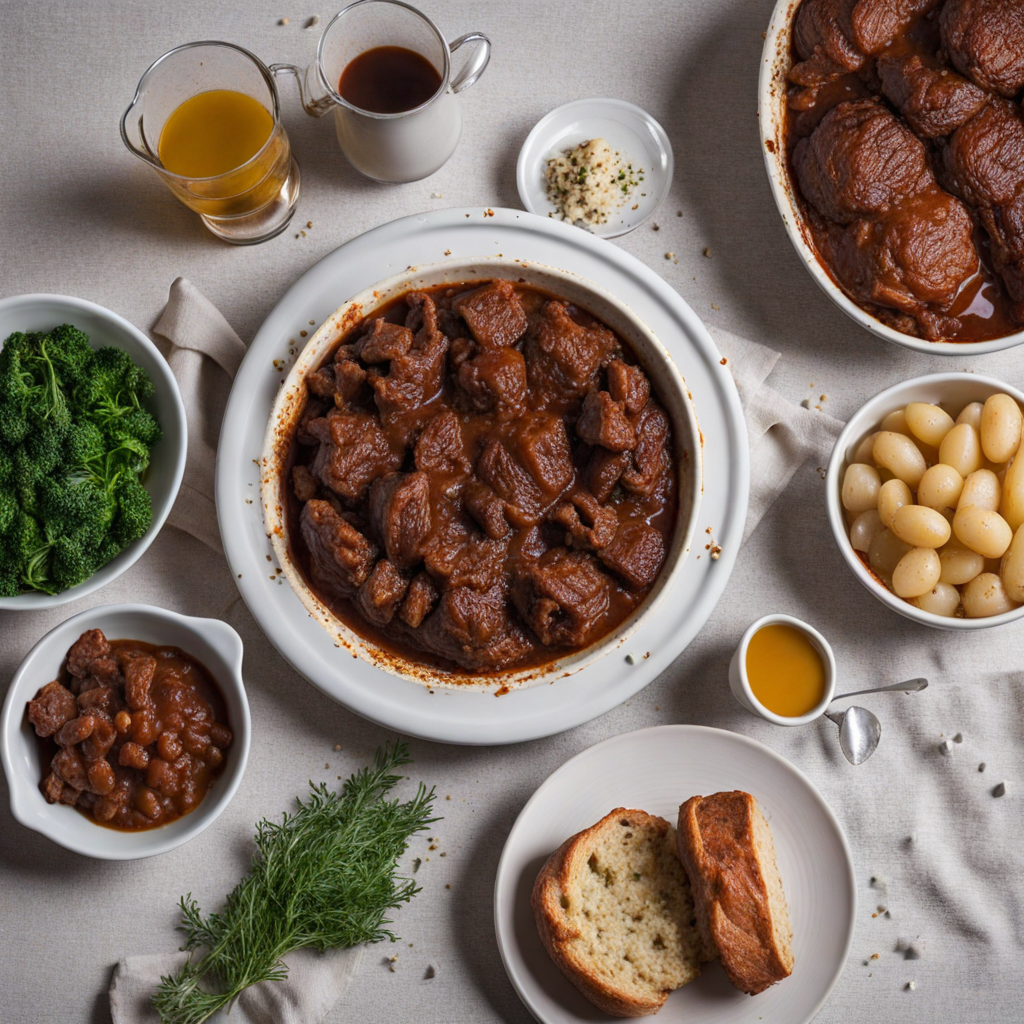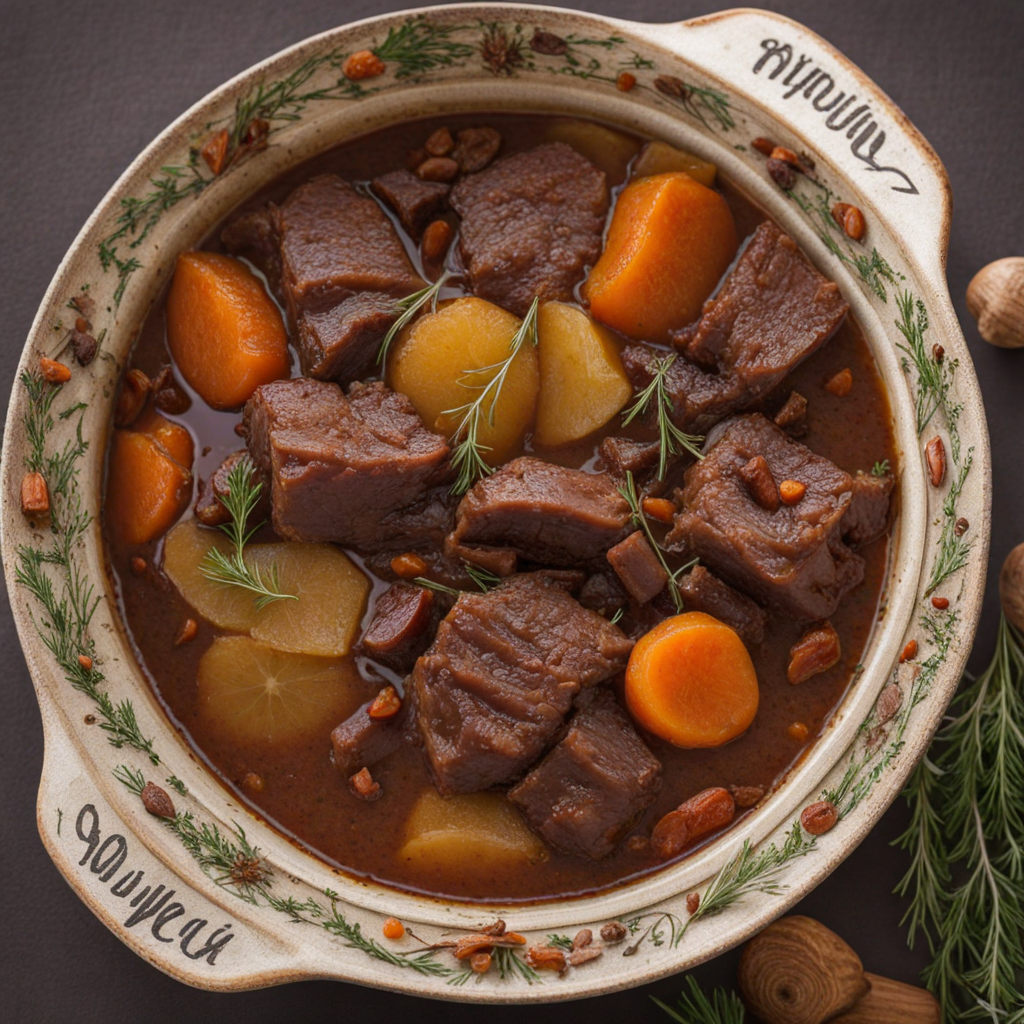Povitica
Povitica is a traditional Croatian pastry that boasts a rich history and an even richer flavor profile. This rolled dough delicacy is typically filled with a combination of nuts, sugar, and spices, creating a beautiful contrast between the soft, light pastry and the dense, flavorful filling. The most common filling is a blend of walnuts, sugar, and cocoa, but variations can include poppy seeds, hazelnuts, or even fruit preserves, allowing for a delightful array of tastes that cater to different palates. The dough is stretched thin to a near-translucent state, which is then layered with the filling before being rolled and baked, resulting in a stunning spiral design when sliced.
How It Became This Dish
The Enigmatic History of Povitica: A Croatian Culinary Gem Povitica is not just a dessert; it is a rich tapestry of history, culture, and community woven together through generations in Croatia. This delightful, rolled pastry filled with a variety of sweet ingredients has become an emblem of Croatian culinary tradition, cherished by many both within and outside its borders. To understand the significance of povitica, one must delve into its origins, the cultural contexts that shaped its development, and its evolution over time. #### Origins: A Culinary Mosaic Povitica, pronounced as "poh-vee-tee-tsa," finds its roots in Central and Eastern Europe, particularly among the Slavic peoples. The word itself is derived from the Croatian word "poviti," meaning "to roll." The earliest mentions of similar rolled pastries can be traced back to medieval times, with influences from neighboring regions, including Hungary, Austria, and Italy. In Croatia, povitica has a special place, particularly in the regions of Slavonia and the northern areas of the country, where the art of bread-making and pastry-crafting flourished. Traditionally, povitica is made with a yeast dough that is rolled out thinly, filled with a mixture of ground nuts, cocoa, cinnamon, sugar, and sometimes a splash of rum or vanilla. The filled dough is then rolled and twisted into a loaf shape before being baked to golden perfection. The preparation of povitica is often a communal activity, with families gathering to share recipes, techniques, and stories, reinforcing its status as a symbol of togetherness and community. #### Cultural Significance: A Family Tradition In Croatian culture, povitica is much more than just a sweet treat. It is often associated with important life events and celebrations. Families prepare this delicacy during holidays, weddings, and religious festivities, making it a centerpiece of gatherings. The process of making povitica is steeped in ritual; it is often made with love and shared among loved ones, signifying warmth, hospitality, and familial bonds. The significance of povitica is also reflected in its representation of Croatian heritage, especially among the Croatian diaspora. As Croatian immigrants spread across the globe, particularly to America in the late 19th and early 20th centuries, they brought their culinary traditions with them. Povitica became a symbol of their cultural identity, a way to maintain connections to their homeland, and a means to share their heritage with new generations. #### Development Over Time: From Tradition to Modernity Over the years, povitica has evolved while maintaining its traditional roots. The basic recipe has remained largely unchanged, but variations have emerged to cater to different tastes and preferences. While the classic walnut filling remains the most popular, others have experimented with ingredients such as poppy seeds, fruit preserves, and chocolate, leading to a delightful diversity of flavors. In the 20th century, povitica began to gain recognition beyond Croatian borders, particularly in the United States, where it became a staple in Croatian-American households. Bakeries started to emerge, specializing in this unique pastry, and it became a sought-after item during the holiday season. The popularity of povitica in the U.S. has led to the establishment of annual festivals celebrating Croatian culture, where povitica takes center stage alongside traditional music, dance, and other culinary delights. Furthermore, the rise of social media has played a crucial role in revitalizing interest in traditional foods like povitica. Recipes, videos, and personal stories surrounding its preparation and enjoyment have circulated widely, inspiring a new generation of bakers and food enthusiasts. Many people now share their own spins on povitica, experimenting with flavors and techniques, ensuring that this age-old recipe continues to thrive. #### A Symbol of Resilience and Connection Povitica also carries narratives of resilience and connection. For many Croatian families, making povitica is a way of honoring their ancestors and preserving traditions that may have been lost over time. The act of gathering to bake together fosters a sense of belonging, especially for those living far from their homeland. It serves as a reminder of the rich culinary heritage that has been passed down through generations and the importance of maintaining cultural ties amidst globalization. Moreover, povitica has also found its place in the broader context of culinary tourism. Croatian cuisine has garnered attention worldwide, with travelers seeking authentic experiences. Povitica, with its intricate preparation and delightful flavors, has become a must-try for food lovers exploring Croatian culture. Cooking classes and workshops focused on povitica have emerged, allowing participants to connect with local traditions and learn the art of making this beloved pastry. #### Conclusion: The Legacy of Povitica As we explore the history of povitica, it becomes clear that this cherished pastry is a living testament to the resilience and creativity of the Croatian people. It symbolizes the blending of cultures, the importance of community, and the enduring power of culinary traditions in connecting generations. In every rolled layer of povitica, there lies a story—of families gathering in kitchens, of immigrants carrying their heritage across oceans, and of communities celebrating their identity through food. In a world that often seems fast-paced and disconnected, povitica serves as a delicious reminder of the simple joys of sharing food, fostering connections, and preserving traditions. Whether enjoyed during a festive gathering, as a comfort food during quiet moments, or shared with friends and family, povitica continues to hold a special place in the hearts of many, ensuring that its legacy will endure for generations to come.
You may like
Discover local flavors from Croatia


